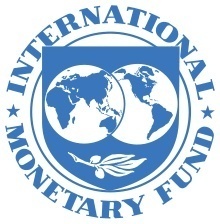
WASHINGTON (AFP) - After debt loads surged last year amid the pandemic, governments now must take care to “calibrate” spending, the IMF said Wednesday.
Global debt in 2020, including public and private borrowing, “jumped by 14 percent to a record high $226 trillion,” according to the International Monetary Fund‘s Fiscal Monitor report.
Public debt amounts to $88 trillion, close to 100 percent of GDP, and is expected to decline only gradually, said Vitor Gaspar, director of the IMF’s Fiscal Affairs Department.
But there is a risk excess private debt will become public debt so “countries will need to calibrate fiscal policies to their own unique circumstances,” Gaspar said in a blog post about the report.
Massive public support helped to soften the economic blow from the pandemic, as well as the health impact.
Huge aid packages in the United States and Europe “could add a cumulative $4.6 trillion to global GDP between 2021 and 2026 if fully implemented,” Gaspar said.
In advanced economies, with progress on containing the virus, spending is shifting away from the immediate crisis, towards green and digital policies and the effort to “make economies more inclusive.”
For example, US budget proposals “aim to reduce inequality and could cut poverty by nearly one-third,” he noted.
But emerging markets and low-income developing countries “face a more challenging outlook” and “long-lasting negative impacts,” as falling tax revenues due to the ongoing crisis will leave little room for investing in development, he said.
He repeated the IMF call for continued support for the poorest nations dealing with high debt loads.
“While recognizing that the international community provided critical support to alleviate fiscal vulnerabilities in low-income countries, more is needed,” he said.
-
Articles by AFP



















![[Today’s K-pop] Treasure to publish magazine for debut anniversary](http://res.heraldm.com/phpwas/restmb_idxmake.php?idx=642&simg=/content/image/2024/07/26/20240726050551_0.jpg&u=)